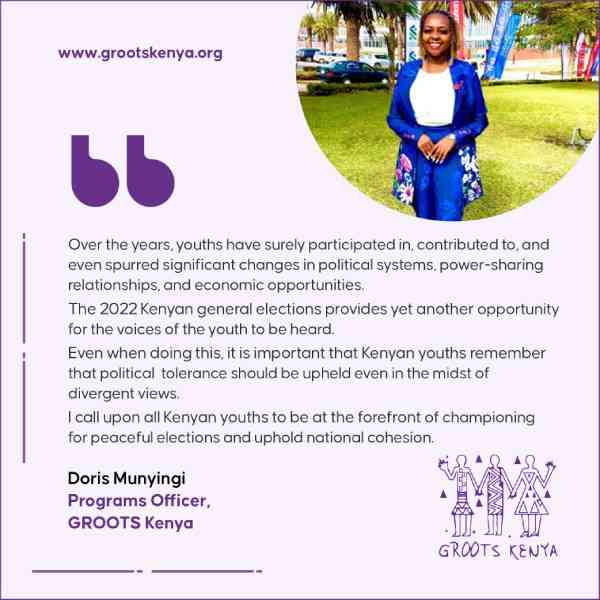
In the midst of a high-stakes general election, county planning departments are ready to produce the third-generation County Integrated Development Plans (CIDPs).
Given the importance of CIDPs in guiding counties' next five-year development plans (2023-2027), it is reasonable to demand high-quality CIDPs.
Plans that place a greater emphasis on using data to inform sector priorities and domesticating the data-driven global sustainable development goals after ten years of experience.
It is important to note that gender mainstreaming extends beyond political representation to gender-responsive planning, budgeting, and monitoring, despite the fact that there is much debate about it in the electoral political space.
CIDPs and Medium Term Plans (MTPs) are key tools for realizing gender promise. As such, using gender data and statistics, county governments can incorporate programs/initiatives/actions that have favourable and targeted outcomes for men, women, boys, and girls.
"Gender statistics are defined as statistics that adequately reflect differences and inequalities in the situations of men and women in all aspects of life."
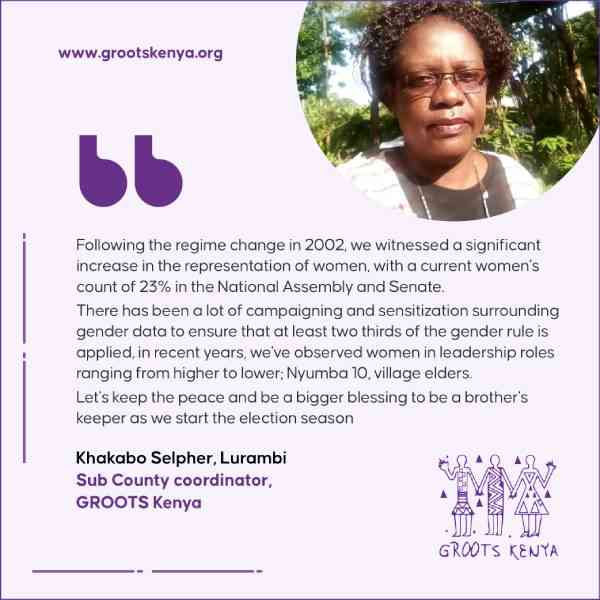
Many counties have historically over-relied on administrative data that is primarily quantitative and lacks important nuances for societal transformation.
Lack of appropriately disaggregated data, insufficient institutional capacities in data application, and issues with timely data availability have all been impediments, particularly at the county level. However, progress has been made to overcome such challenges.
For example, Laikipia county has developed a county-specific c statistical abstract for the last 3 years, contributing heavily to data availability.
Moreover, KNBS, UN Women, and the State Department for Gender have increased the production of gender-disaggregated data products including the publication of gender monographs, county gender fact sheets, the women empowerment index report, and comprehensive poverty profiles. These products are readily available on the KNBS Website/UN Women website.
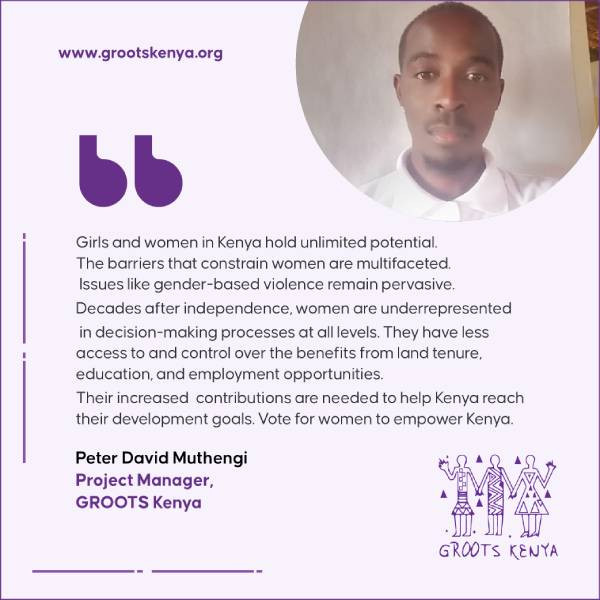
Furthermore, KNBS, in partnership with PARIS21, SDGs Kenya Forum, and Global Partnership for Sustainable Development Data have released standards for citizen-generated data.
This is timely, noting that citizen-generated data production and use is a strategic approach to narrowing the gender gap.
Many gendered experiences of men and women, such as family decision-making power, land rights, access to justice, reproductive rights, and physical autonomy, are not captured in official statistics. Nonetheless, they are critical to achieving gender equality and women's empowerment.
"Citizen-generated data are data produced by non-state actors under the consent of citizens with the purpose of monitoring issues that directly affect them (PARIS21, 2021)."
Therefore, as counties prepare the third generation County Integrated Development Plans (CIDPs), data access and use become a crucial consideration.
The Kenya National Bureau of Statistics is the repository for off icial data providing published data and reports on its website.
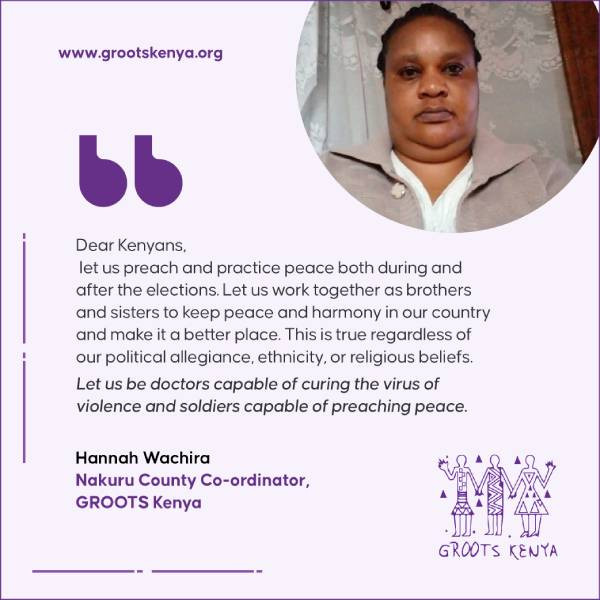
Additionally, peer-to-peer engagement among counties on the utilization of data, not only increases knowledge of the available gender data and statistical products but also promotes collective understanding of the place of data for county development.
Through a series of action roundtables, GROOTS Kenya with the support of UN Women and Equal measures 2030 has invested in ensuring that county technical officers across different sectors i.e., planning, gender, agriculture, energy, water, and trade are equipped with gender data products for use in the upcoming CIDPs.
This is therefore a call to action to all counties to leverage the changing gender data landscape and utilize available gender data products to plan better for women and men of Kenya.
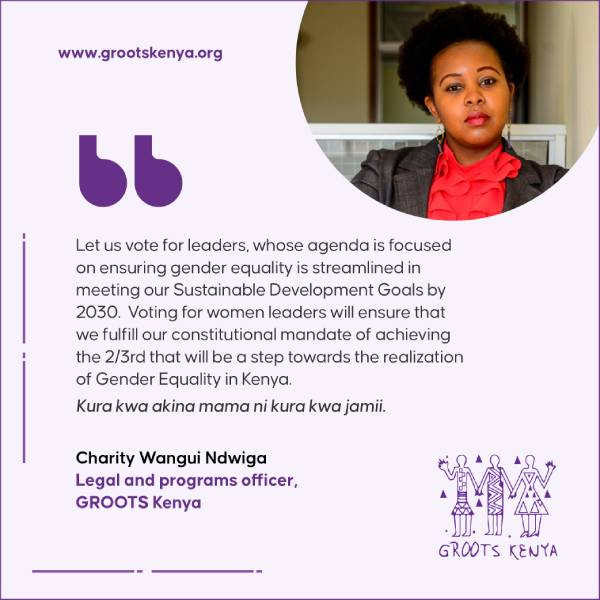
For visualized gender data: visit www. genderdatakenya.org. To track the progress Kenya is making against other countries in the world visit https://www.equalmeasures2030.org/2022-sdg-gender-index/
Moreover, to learn more about the Kenya Country fact sheet and other new gender data products visit the Women Count program at https://data.unwomen.org/country/Kenya
Written by: Fridah Githuku, Dennis Mwaura and Vivian Muthoni.
 The Standard Group Plc is a multi-media organization with investments in media
platforms spanning newspaper print operations, television, radio broadcasting,
digital and online services. The Standard Group is recognized as a leading
multi-media house in Kenya with a key influence in matters of national and
international interest.
The Standard Group Plc is a multi-media organization with investments in media
platforms spanning newspaper print operations, television, radio broadcasting,
digital and online services. The Standard Group is recognized as a leading
multi-media house in Kenya with a key influence in matters of national and
international interest.
 The Standard Group Plc is a multi-media organization with investments in media
platforms spanning newspaper print operations, television, radio broadcasting,
digital and online services. The Standard Group is recognized as a leading
multi-media house in Kenya with a key influence in matters of national and
international interest.
The Standard Group Plc is a multi-media organization with investments in media
platforms spanning newspaper print operations, television, radio broadcasting,
digital and online services. The Standard Group is recognized as a leading
multi-media house in Kenya with a key influence in matters of national and
international interest.














